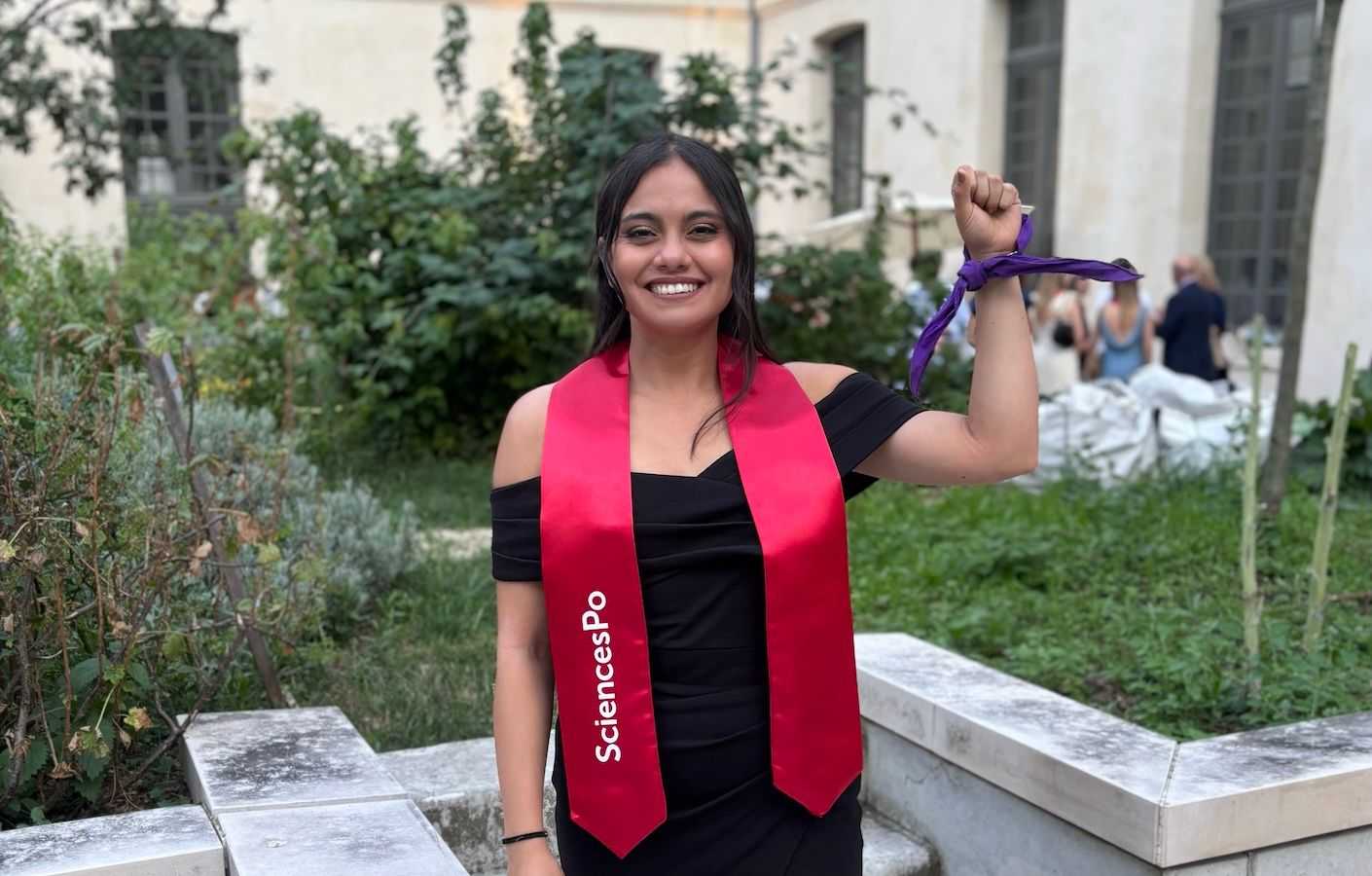Home>Meet the Graduates 2025: Valentina Cantor Lesmes

09.07.2025
Meet the Graduates 2025: Valentina Cantor Lesmes
In this interview, Valentina Cantor Lesmes, a recent graduate from the Master in Human Rights and Humanitarian Action, reflects on how the Advanced Certification in Gender Studies has deepened her understanding of intersectional discrimination, feminist research methodologies and the global struggle for gender justice. Drawing on her personal background in Colombia and academic experience at Sciences Po, she discusses the importance of applying a gender lens to peacebuilding, humanitarian work and social policy.
Why was it important for you to add the Advanced Certification in Gender Studies to your academic path at Sciences Po?
When conducting a socio-political analysis of a historical or current event, the experiences and knowledge of women, girls and sexual diversities have historically been dismissed. Analysing through a gender lens allows not only for an understanding of the patriarchal power dynamics that place women at a disadvantage, but also for highlighting the various factors (class, gender, race, ethnicity) that cause certain social groups to experience even greater discrimination and social injustices. By identifying these intersectionalities, the analysis becomes more complete and breaks the cycle of excluding and discriminating against people who suffer from gender-based violence in public policies, development and humanitarian programmes, and decision-making scenarios. This is what prompted me to take several gender courses, such as “Women, Peace and Security” and “Rapid Gender Analysis”, offered by Sciences Po, in order to take my knowledge of gender studies to a higher level and to gain the necessary practical tools to ensure no one is left behind.
Which gender studies class left the strongest impression on you?
Growing up in Colombia, a country where social injustices are part of daily life for many people, and where armed conflict has mainly affected peasant, Afro-Colombian and Indigenous women and girls, allowed me to understand, from a very early age, that political solutions must go hand in hand with a gender analysis capable of comprehending the needs of an entire community. The gender approach of the Colombian Peace Agreement, signed in 2016, was the result of a collective and intersectoral feminist struggle that united women from all walks of life for the same cause: to achieve social justice and establish a stable peace for all.
Therefore, the class “Sexual and Gender-Based Violence during Conflict” taught by Nazand Begikhani provided me with the theoretical foundations of decolonial feminism, as well as feminist methodological tools to conduct research that highlights the intersections between gender, colonialism and conflict dynamics. In addition, this class boosted my interdisciplinary skills through art-based methodologies, enabling us, as feminists, to work with survivors without causing further harm. These skills and this knowledge have shaped me as a professional capable of contributing to the feminist struggle, whether in my home country or abroad.
What is one of your most memorable experiences from your time at Sciences Po?
Meeting women willing to fight together against the political systems that harm women and girls around the world has been inspiring. The gender classes allowed me to build community and connect with people with whom I can discuss and envision a future where we work collectively to end injustices expressed in different forms across different societies. This union of nationalities helped me to understand the diverse experiences women face in different countries and to learn how to fight for our rights, in the midst of an international context where it is increasingly difficult to speak of dignity, non-discrimination, equality and social justice.
What one-sentence advice would you give to the next cohorts?
There is always more to learn; there is always something to fight for.
How do you envision the next chapter of your career or studies?
Due to the current international political context in 2025, what follows is not yet written. We must work across all disciplines and from all countries to end human suffering and to build a world where conflict is not the easy way out. I will continue to raise my voice and work to achieve a life of dignity for all women, where no woman suffers sexual and gender-based violence, where all girls and women have access to sexual and reproductive health services, and where all women can live in peace with social justice.
More
Cover image caption: Valentina Cantor Lesmes, a recent graduate from the Master’s in Human Rights and Humanitarian Action (credits: VC)